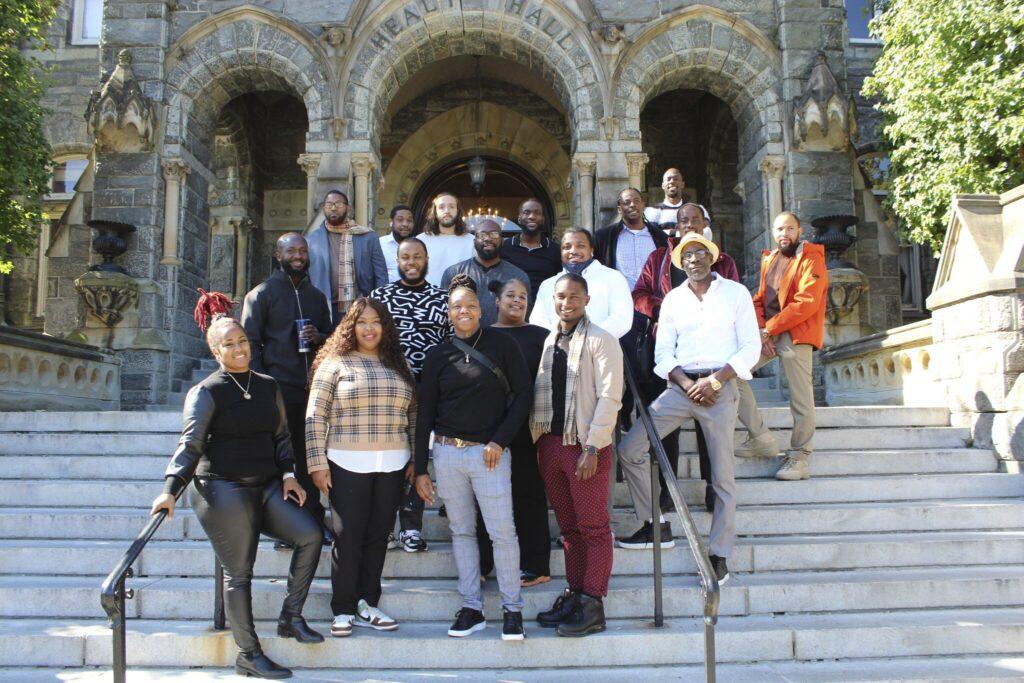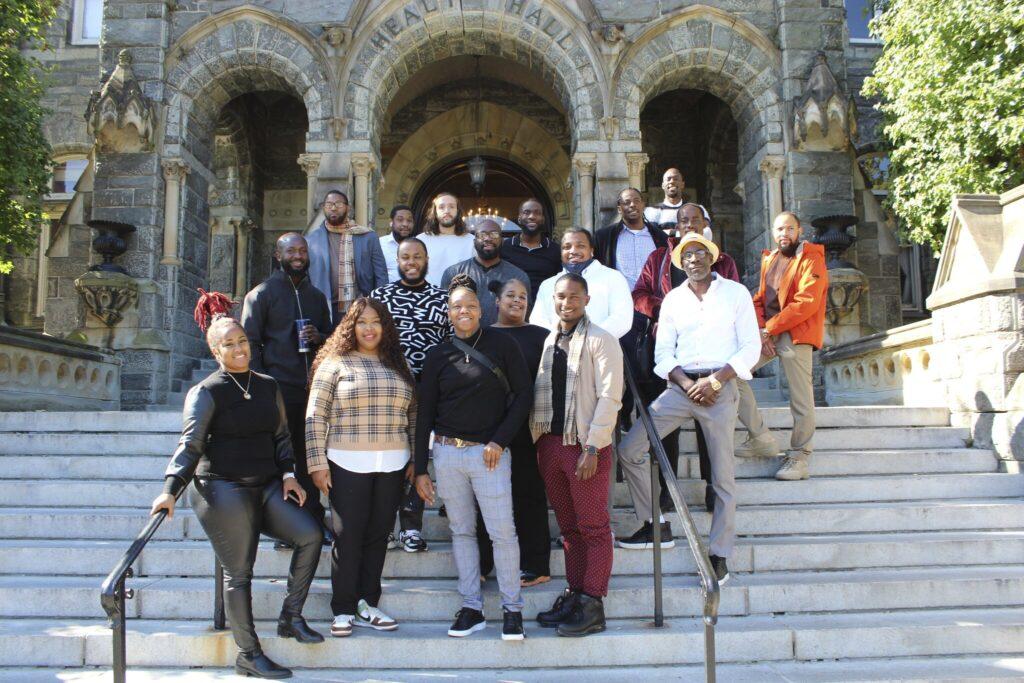Georgetown University welcomed its fifth cohort of Pivot Program fellows, 19 formerly incarcerated individuals who will participate in the year-long reentry program.
The Pivot Program is designed to provide formerly incarcerated individuals with leadership development and professional opportunities. It was co-founded by the McDonough School of Business, Georgetown College and Georgetown’s Prisons and Justice Initiative, which seeks to provide education for incarcerated students and returning citizens. Fellows, who began the cohort Oct. 11, participate in nine months of academic courses, an internship with a local business or nonprofit and a business pitch competition.
Raashed Hall, a new Pivot fellow, said he learned about Pivot through his reentry program coordinator and immediately knew he wanted to apply.
“Before I got incarcerated, I had aspirations of obtaining my own business and having my own ventures going for myself,” Hall told The Hoya. “So, it was like a no-brainer.”
Hall said he is looking forward to completing the program and hopes to start his own fitness venture after graduating.
“I do personal training on the side, so I wanted to expand into my own outfit or my own business venture in that personal training field and physical fitness,” Hall said.
Jihad Barnes, a fellow in this year’s program, said the program bridges a path toward his future goals, both professional and personal.
“I knew it could be a stepping stone to greater things that I wanted to achieve,” Barnes wrote to The Hoya. “It also was an opportunity for me to grow in different aspects and become in tune with who I was and what I aspire to be.”
Hall said his favorite course is grammar, a skill he worked on while he was incarcerated.
“I never learned good grammar growing up and I developed a bad habit,” Hall said. “I kind of re-taught myself how to talk in a manner where I can convey my thoughts in an intellectual way, as opposed to using slang all the time.”
Pivot courses are largely taught by Georgetown faculty and emphasize oral and written communication, interpersonal skills, design thinking, financial literacy and digital technical skills, according to Alyssa Lovegrove, Pivot academic director and Georgetown professor.
Pivot is part of the D.C. Reentry Action Network, a coalition of nonprofits that provide direct services to returning citizens, and the Second Chance Business Coalition, a group of private sector companies committed to expanding second chance hiring.
The Department of Corrections, the public defender’s office, parole services and various nonprofits refer potential applicants who show strong ambition to the program, according to Lovegrove.
“It’s really designed for people who self-identify as potential leaders within the community,” Lovegrove told The Hoya. “We’re looking for people that have a plan and have a vision for what they want to achieve and are emotionally ready to make a commitment to a program that’s the better part of an academic year.”
Typically, the program receives more than 100 applications and aims to enroll a cohort of 10 to 20 fellows each year, Lovegrove said.

Fellows receive stipends to support living costs during their participation in the program, funded by the D.C. Department of Employment Services (DOES). As one of Pivot’s major partners, DOES also pairs each fellow with a job coach and serves as a resource for graduates.
Jason Washington, DOES chief of staff, said Pivot aligns with the department’s goal of helping all job seekers in D.C. thrive.
“To leverage a local institution like Georgetown to provide on-ramps to employment for returning citizens makes sense for our workforce, economy, and public safety,” Washington wrote to The Hoya.
According to Washington, the employment rate for Pivot graduates is almost 80%, which is double the national average for returning citizens.
Jack Gasdia (SFS ’24), who has been a Pivot peer tutor since Spring 2022, said the program places an emphasis on second chances, focusing on the future and challenging misperceptions surrounding returning citizens.
“I have so much respect for the people who participate in Pivot for their ambition and their courage to go back out there and advance their education,” Gasdia told The Hoya. “It’s really rewarding to help people discover the core parts of who they are and what they want to be and helping them build the skills to get there.”
Pivot is more rigorous than similar programs as it is longer and expects that fellows go beyond simply attending sessions to receive a check or certificate, according to Hall.
“The seriousness of it is kind of surprising, in the sense of when you measure Pivot up to other reentry programs, it’s just leaps and bounds ahead,” Hall said.
Beyond offering programming for its fellows, Pivot aims to promote awareness about second chance hiring, which is the practice of employing formerly incarcerated individuals.
In doing so, companies can work toward addressing racial disparities in the workforce, according to Lovegrove.
“We want ultimately for second chance hiring to not to be the exception, but to be the norm: that every candidate is evaluated on the basis of what they can bring to the job and not on the basis of some historical fact in their path,” Lovegrove said.























Marc • Oct 28, 2022 at 7:48 pm
Totally racist program. All but one of the 19 previously incarnated are black. Georgetown is singleing out one minority. Crime is a people problem that should not focus on race.